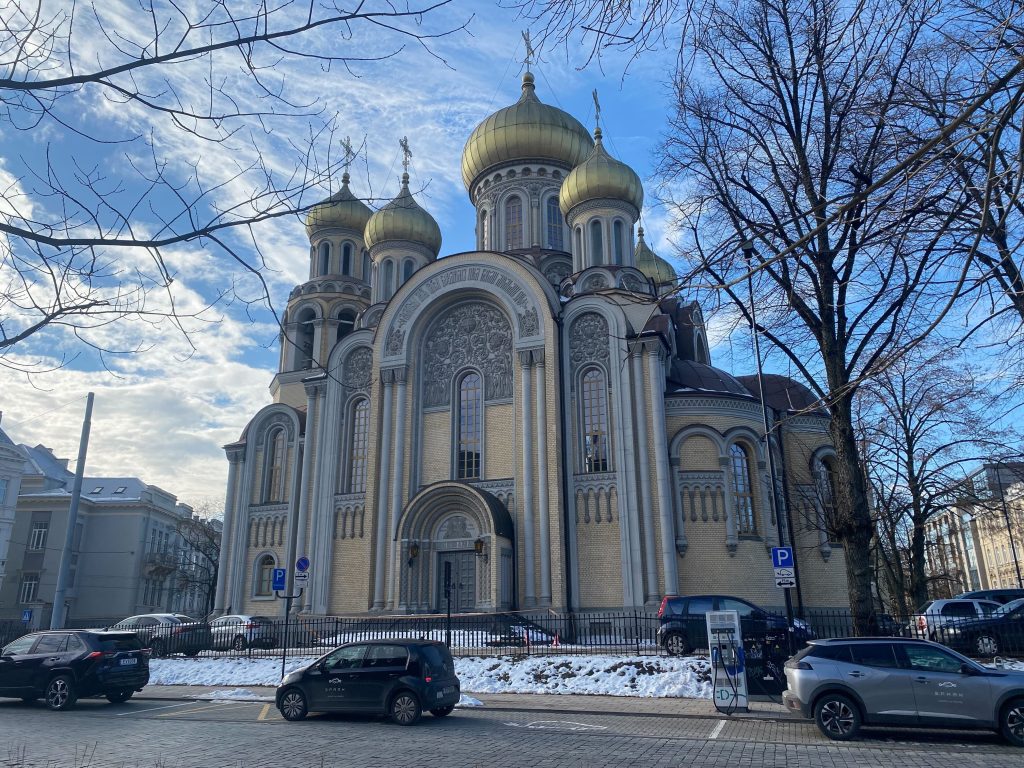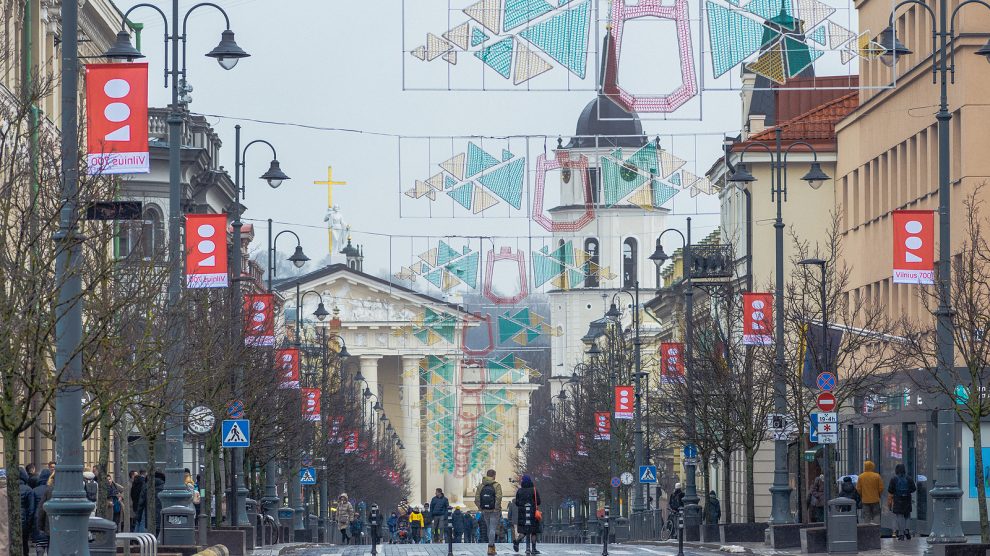The Lithuanian capital is marking its 700th birthday this year. Emerging Europe’s Devin Haas has been joining in the celebrations.
I was wary of the gira.
I had seen kvass – a low-alcohol grain drink flavoured with honey and herbs – before, in Poland, but I had never seen it served hot and foamy.
“Gira is Lithuanian kvass; it is great if you are beginning to get a cold,” the woman in front of me in line told me.
It was Friday – only the beginning of the three-day fair in honour of Saint Casimir – but the festivities were already in full swing. Vendors selling traditional Lithuanian Easter palms called verbos, crafts, antiques, and all manner of smoked meats had filled the old city’s streets with tents and food stalls.
The fair has been held for hundreds of years over the weekend closest to March 4: the anniversary of Saint Casimir’s death. It’s a yearly tradition that Lithuanians have faithfully held in all manner of weather. The only times it has been cancelled were in World War II and during the Covid-19 pandemic.
This year it is back in full force. Thousands of visitors from across Lithuania and neighbouring countries converged on Vilnius to partake in the events, which begin with a parade of locals dressed in folk costume led by a large effigy of Saint Casimir.
Multi-faith city
As Vilnius celebrates being “700 years young”, tourists will have no shortage of sights to see or events to choose from even if they missed the fair.
Known as both the “city of churches” and “the Jerusalem of the North”, the city has a rich multi-faith history. The Vilnius Cathedral Basilica and its bell tower is an immediately recognisable landmark, but the beautiful orthodox Cathedral of the Theotokos and Church of St Constantine and St Michael are also must-sees.

Litvak Jews once made up 45 per cent of Vilnius’s population and the city boasted 110 synagogues; to learn more about the city’s Jewish past and see the former ghetto and only surviving synagogue, take a Jewish history walking tour. Meanwhile, two wooden Lipka Tatar mosques in the city’s suburbs are accessible by short buses.
For a meal, stop at my favourite food hall: the Hales Market. While inflation is hitting the Baltic states hard, portions of Uzbek plov and Hungarian goulash here are still less than five euros.
Visitors should also take a bus to nearby Trakai to see its stunning castle in an island in the middle of a lake. There, travellers can also learn about the town’s Karaim community and their endangered language then try their delicious kybyn at the restaurant Kybynlar.
More to come
2023 marks 700 years since the first written reference of Vilnius, and the city is celebrating with a series of festivals, performances, and exhibits called 700 Vilnius.
On July 25 – the feast day of St Christopher, the patron saint of Vilnius – Vingis Park will host the As Young As Vilnius musical festival. Attendees can enjoy performances of classical, pop, and electronic music free of charge.
The Music in Vilnius project has commissioned seven world-famous composers to prepare original musical compositions inspired by the “architectural, cultural and social environmental characteristics” of their favourite place in the city. Visitors will be able to listen to these compositions in the locations that inspired them.
Ričardas Gavelis’s novel Vilnius Poker, described as “most famous of modern Lithuanian novels”, has inspired multiple projects for 700 Vilnius. The novel, set in 1970s Vilnius, follows a man’s investigations into a “nefarious cabal only referred to as Them that secretly controls everything” and will be adapted into an exhibition at the MO Museum and a film.
While Vilnius’s beautiful architecture and streets are timeless, 2023 is an important milestone in its history and will offer visitors many unique ways to experience Lithuanian culture. Visit, and try some gira for yourself.
Unlike many news and information platforms, Emerging Europe is free to read, and always will be. There is no paywall here. We are independent, not affiliated with nor representing any political party or business organisation. We want the very best for emerging Europe, nothing more, nothing less. Your support will help us continue to spread the word about this amazing region.
You can contribute here. Thank you.


